What Milestones Should A 8 Month Old Have?
The eight month with your baby is bound to be a riot. They will be responding better, show development in their motor skills, understand several concepts that allow them to bond better with you and their environment. From leaps in their physical development, they have also started their journey with solids foods. Your young one stays awake for more intervals during the day and sleeps well during the night. Make use of this energy with 8 month old baby development activities.
Physical Development Milestones For 8 Months Baby
Physically your baby is on a roll! With their body muscles developing each month, they will confidently try to be more mobile. From attempting to stand with support and get up from a sleeping position on their own, they will showcase independence and the curiosity to reach out to the elements around them. Here’s more on what they can achieve by this month
1. Stands with Support
By the eighth month, your young one will attempt to stand with the use of the support of objects around their proximity. And as they do, they will have enough strength to stand in that position stable, with good balance.Completion Rate on BabyG App: 67% Babies
Importance: Standing is a huge developmental milestone for a child. By attempting to stand they not only showcase growth in their stability and balance but also their feet, ankle, leg and core muscles. Making use of their babies will later learn to coordinate their muscles to walk and later run.
What if my baby does not complete this milestone?
If your baby seems mobile in all other regards like scooting, check if they can bear a little weight on their legs on the ground as you hold them by their arms. If they stimulate walking then, include some gross motor activities in their daily routine to build their muscles for standing. If not, then mention it to your healthcare provider.
2. Sitting and Changing Positions
Your eight-month-old will be independent enough to change positions on their own now! For starters, they might go from comfortably sitting straight to leaning forward to get into a crawling position and come back up again. They will attempt to do all this while maintaining optimal balance. Furthermore, they will also try to get up from a nap to sit with ease.Completion Rate on BabyG App: 54% Babies
Importance: Infants that are able to sit and change positions at this age, receive more opportunities thar visual-manual exploration s
What if my baby does not complete this milestone?
You child may require another month of consistent motor activities to help them develop the muscles required to master sitting and changing positions easily.
3. Parachute Reflex
This milestone refers to when your child achieves the 'Parachute Reflex', which develops around this age or so. It is an infant's developed ability to protect itself by extending its hands ahead when the body is hurled forward in an account of a fall.
Completion Rate on BabyG App: 71% Babies
Importance: The development of this particular milestone allows your precious child to protect themselves instinctively and avoid any serious injuries that they may encounter while learning to crawl and walk. Since this reflex is crucial for safety, practicing it at home and building on the parachute reaction will help your child walk independently.
What if my baby does not complete this milestone?
Give it another month or so. In the meantime engage your child in upper body motor activities to stimulate the parachute reaction optimally.
Here’s how to check for parachute reflex at home.
4. Crawling
Next thing you know, your child will be able to take their weight on their knees by standing on them by raising their hands from a crawling position. A master at crawling, they will be able to crawl certain distances, avoiding obstacles as they zoom past.
Completion Rate on BabyG App: 59% Babies
Importance: As a milestone, crawling gives children a way to look at the world at their own pace and perspective. In terms of developmental skills, it aids building coordination, motor control, balance while boosting problem-solving skills and deflecting obstacles along the way.
What if my baby does not complete this milestone?
Some children can completely skip this milestone all together, so it in’t a cause for concern if your child isn’t crawling at all. As long as they are scooting and using other ways to coordinate their muscles to be mobile your child is on the right track of development.
5. Clapping
Your child will start to clap their hands together when prompted by an adult.
Completion Rate on BabyG App: 50% Babies
Importance: Clapping their hands together voluntarily is a milestone in motor coordination, cognitive development and self expression. As your child begins to learn about cause and effect and gains enough insight on the usage of the skill, they will master this psychological-cultural need. All while boosting their confidence, motor synchronization and sensory skills.
What if my baby does not complete this milestone?
Clapping or other activities in the same context are mainly reactions to social cues, that the child picks up on the basis of prior referencing. You may need to introduce your child to the same with fine motor activities and bonding activities like singing out a rhyme and clapping on key.
8 Months Baby Activities To Reach Physical Milestones
1. Standing up foundation
Now that your baby ‘Stands with Support’, have them lie, face-up on a soft surface while you sit such that their legs are against your knees. Next, hold your baby by their hands and slowly bring them to a standing position. Keep them standing for a few seconds and lay them down again. Repeat this a couple of times until the baby cooperates. Remember to make such activities fun by talking your baby through them and making voices as you go along. This particular activity allows them to strengthen their legs and back muscles.
Frequency: Couple of times everyday, for a few weeks
2. Parachute Reflex
To develop the protective reaction, hold your baby by their waist with a comfortable yet firm grip and lean their body forward. Ensure that as you lean them forward you have a soft surface in front of them. As you stimulate the falling motion, they will put their hands on the soft surface to break their supposed ‘fall’. If your baby hasn’t achieved the reflex yet, have them touch the soft surface and bring them back up to start the activity all over again.
Frequency: Repeat for a couple of times
3. Crawling with Obstacles
As mentioned earlier in the ‘Crawling’ milestone, here’s a fun activity to make your baby’s playtime fun. All while stimulating body control as well as balance. Once your child is a master at crawling, place them down on a clean surface and lay a few pillows in their path. Have them focus on a toy in your hand and call her to come to you by crossing or avoiding the obstacles to get the toy.
Frequency: Once a day for a week
Cognitive Development Milestones For 8 Months Baby
The eight-month is all about keeping your young one engaged with elements that they find in the surrounding around them. With the growing knowledge of object permanence, they have discovered a new way of viewing their world. Learn more about the cognitive milestones that an infant showcases around this age
1. Peek-a-Boo
Cue the peek-a-boo games! Your child will now actively engage in the game by removing their hands or objects from their parent's faces with glee.Completion Rate on BabyG App: 78% Babies
Importance: Now that your child understands that even though you are out of sight you are bound to return and this universally enjoyed game lays foundation for the same. Not only that it induces bonding, giggles and imitation later as well.
What if my baby does not complete this milestone?
If your baby isn’t a fan of the game, then we recommend encouraging starting slow with a see-through cloth so that they know you are on the other side of it, and some object permanence activities that will help solidify the concept.
2. Cause and Effect
You will see progress in their understanding of cause and effect. Your infant will comprehend and anticipate certain outcomes to be produced after particular actions. For example, when the doorbell rings, they know that someone will come through the door, or when they see a switch being turned on/off, they will look at the fan to see the change in its movement.Completion Rate on BabyG App: 79% Babies
Importance: From early on babies pick up on the fact that when a rattle is shaken it will create sound, as early as three months. The newfound understanding of the concept helps in putting their skills to use, ultimately stimulating reactions. With this milestone, they build cognitive skills, language, and social skills.
What if my baby does not complete this milestone?
Children learn such complex concepts over a greater part of their early years. They learn by witnessing and analyzing goal-oriented actions. With continual effort and relevant activities, they will recognize such physical cues getting a better grasp on the concept.
3. Improved Object permanence
There will be a significant improvement in your child's understanding of object permanence. This can be concluded as they can retrieve partially hidden objects.Completion Rate on BabyG App: 82% Babies
Importance: The concept of object permanence helps kids understand that a particular object exists even if it is momentarily out of sight. This could help children soothe stress from separation anxiety. Building their memory, the scope of exploration and language skills.
What if my baby does not complete this milestone?
Children can continue to learn the concept over the course of months further. To encourage object permanence in infants parents can engage in peek-a-boo, memory-building activities and many more on the BabyG app.
4.Remembers Familiar Directions
Babies this age can remember the layout of their home and often crawl back to the original place when picked up and set somewhere else.Completion Rate on BabyG App: 60% Babies
Importance: This milestone presents a vast development in a child’s memory skills. Babies learn to remember directions and landmarks to make use of, with their developing attention and visual-spatial skills. These skills gradually get refined with age and help children remember their surroundings better.
What if my baby does not complete this milestone?
Your little ones will be able to grasp this skill better when they are introduced and made comfortable with their surroundings beforehand. Remember that this may take a few tries. Parents and caregivers can encourage this with cognitive activities that aid in the development of spatial, working memory with the use of motherese.
5. Understands of Speed and Distance
This milestone refers to when your munchkin crawls away a little bit faster in glee when they realize you are following behind to catch them during playtime. The reaction helps us deduce that your little one understands the relation between speed and distance now.Completion Rate on BabyG App: 47% Babies
Importance: With the development of the motor skill, crawling, babies have a developed understanding of their movements in relation with the changes in the surrounding environment. This signifies a great deal of dynamic spatial relations awareness as well as other cognitive skills like logical thinking and attention.
What if my baby does not complete this milestone?
Most kids do grasp the concept of spatial awareness by the age of 8 months, but if in case your child doesn’t you can stimulate the same with motor activities that allow them an understanding of visual processing and sensory experiences.
8 Months Baby Activities To Reach Cognitiive Milestones
Here are some of the activities to help your child develop their cognitive skills right from infancy:
1. Where Did It Go
To stimulate the concept of ‘Object Permanence’, get a toy and place it by your child. Next, cover it with a blanket, and say “Where did the toy go?”. Concurrently, lift the blanket as you exclaim, “Here it is!” After a few tries, let your child uncover the object themselves. Remember to vocalize the exchange with every new object.
Frequency: Once a day for a week
2. Squeezing a Sponge
Help your child understand the concept of ‘Cause and Effect’ with this bathtime activity. Prepare a tub with some water and a sponge. Hand your baby a wet sponge and help them squeeze it. As she does so water will flow out of it. Through this your child learns about different properties of objects and each action has a concurrent outcome.
Frequency: 3 - 4 times during a week
3. Another World
In order to familiarize your child with the layout of the house in the milestone ‘Remembers Familiar Directions’, carry them on your shoulders, on in your arms around the house. Call out the name of the spaces while they get comfortable with the different perspectives and movements.
Frequency: 3 - 4 times during a week
Communication Development Milestones For 8 Months Baby
While the previous months were about the emergence of babble, around this age your child will start to comprehend the words being mentioned around them. They will begin to express emotions with intent and point at things that they need to communicate better with you or other caregivers.
1. Produces Sounds to Express
Your child will try to express different emotions such as happiness, cooperation, disapproval, and anger with the help of sounds.
Completion Rate on BabyG App: 94% Babies
Importance: Your baby vocalizing said 'emotions' results from their knowledge that they can try to communicate their feelings through to you with the help of verbal expression. Such voluntary expressions primarily start from social referencing, imitation at its core but it slowly develops context to relay specific emotion shifts. These verbal cues help in building emotional regulation, empathy and better social interaction with caregiver or the parent.
What if my baby does not complete this milestone?
As mentioned above children learn about emotions and reactions through social referencing through you or any other primary caregiver. This means that, you will have to actively engage with your child, communicating with them daily for them to pick up on such cues. Your child will try to communicate with non-verbal cues as well as smile and laugh, cry voluntarily, if they do not do so, mention it to their pediatrician.
2. Single Syllable Words and Lengthy Blabber
Your little one will now make single-syllable sounds like ‘ma, pa, ba, da,’ etc. Another fun behavior they will show is that they will produce long strings of blabber to talk about something in sight. For example, they will blabber continuously when they see a toy lying nearby. This could be an attempt to verbalize and share their imagination. Though they won’t speak them clearly, it will sometimes seem as if they are engaging in a conversation.Completion Rate on BabyG App: 83% Babies
Importance: Babble is an important predecessor of structured speech. Such blabber, which are strings of consonants reinforce that your child can communicate and understand the basics of a back and forth nature of a dialogue.
What if my baby does not complete this milestone?
If your child hasn’t started babbling yet, then you may want to check with their pediatrician at your next appointment.
3. Shows Preference with Body Movements
By the eighth month, your infant is able to express a preference for selected foods, textures, toys, and activties by producing sounds and through body movements.Completion Rate on BabyG App: 88% Babies
Importance: When your child expresses themself through body movements, they showcase development in intentional nonverbal communication. This self-expression aids in regulating their emotions while building on their bonding with the people around them. Whereas, the act of using their body language helps with motor development and visual processing ability.
What if my baby does not complete this milestone?
You can help your child learn the skill by using expressive body language when speaking them. This helps them pick up on routine reactions to imitate later.
4. Imitates Sounds
Tries to imitate sounds made by the objects like drums toys etc. as your child explores them.
Completion Rate on BabyG App: 52% Babies
Importance: A infant may often imitate people, toys and other objects that strike out to them. The act is said to reflect developed cognitive abilities such as observation, memory, as well as social skills, which aid in optimal engagement with elements around them.
What if my baby does not complete this milestone?
Most babies imitate sounds by the eighth month. Apart from letting your child’s pediatrician know about the lack of, instill different sounding words in your routine while speaking to your child. Imitate the sounds of the toys, like a firetruck's distinct ring, so that they are excited to do the same.
5. No
Starts to understand that 'No' is a prohibitive word and hesitates to proceed when you say 'No'.
Completion Rate on BabyG App: 55% Babies
Importance: Processing and understanding the connotation behind the command ‘No’ helps in establishing the context of warning. Comprehending your gentle yet firm ‘No’ keeps them safe from potential dangers. In turn, stimulates self-control, and boundaries.
What if my baby does not complete this milestone?
Infants are still processing their new development skills as they come, and complex concepts that hold context may take a little help to get used to. Parents can aid this by making use of the word once a day for a few weeks within context for them to familiarize themselves and learn the word.
8 Months Baby Activities To Reach Communication Milestones
Here are some of the 8-month-old communication milestones activities to help your child develop their skills right from infancy
1. Single Syllables
Instill ‘Single Syllable Words and Lengthy Blabber’ to build your child’s early vocabulary. Voice out the single syllable words like ma, pa, da and so on in front of your child. Ensure that you emphasize your mouth lip and tongue movements. Once you child successfully imitates those, vocalize words like mama, papa, dada, etc.
Frequency: Multiple times in a day, for next 2 - 3 weeks
2. Animal Sounds
Help your child master the ‘Imitates Sounds’ milestone with this fun activity. First, get a set of animal flashcards, and set them in front of your baby. Next, pick one card up and vocalize the sound of the specific animal. Your interaction should go a little like this, “Here’s a lion, the lion roars like this, ROAR”, “This is a cat, cats go, MEOW” Don’t miss out on the expressions and make it entertaining for your child.
Frequency: 3-4 times during a week
3. Yes and No
Here’s how to add the words yes and ‘No’ to your child's vocabulary. Take a few objects and sort them into two piles, ones that your baby can touch (For eg: toy, spoon, bowl) and others that they should not (scissors, matchbox). Now, place one of the objects in front of your child and when they reach out for the object repeat “Yes, yes, yes” or “No, no, no” with a head nod and head shake respectively. Ensure that your child can touch the ones that are safe for them to reinforce the concept.
Frequency: Once a day for 2-3 weeks
Social and Emotional Development Milestones For 8 Months Baby
Socially forward infants will have a riot this month. They will smile more easily and look for ways to get their affection quota up. While some may feel elated and loved in a social setting focused on them, others babies may still have the stranger danger alert in terms of stranger anxiety. Learn more about what your child accomplishes by this month.
1. Independent Play and Self-Feeding
Your eighth month old will begin to need a little time to themselves and may start doing things independently as well. They will voluntarily pick things up and also feed themselves. You can notice this when they play with their toys alone for some time. These are little markers that indicate their growing independence.Completion Rate on BabyG App: 90% Babies
Importance: Independent play is an integral milestone in one’s development. The act encourages one to problem solve, create and imagine at their own pace. Such skills help kids build their patience and emotion regulation skills later in life. With that self-feeding is a necessary skill, that when started early boosts a young one’s fine motor skills, confidence, and learning when they themselves have had enough food during a meal.
What if my baby does not complete this milestone?
If your child isn't too interested in playing alone, it is totally fine. It is natural for infants to need their parents. To encourage your child to play independently, you can introduce age-appropriate toys like a sensory play mat or stacking cups that are interesting enough to keep them engaged for a while. However, it is integral to note that never leave your child unsupervised with toys and use motherese initially to help them understand how to play with toys they aren’t familiar with.
2. Can handle slightly louder environments
Your little one may now feel more at ease in slightly louder and more crowded surroundings. This may result from their improved understanding of the world.Completion Rate on BabyG App: 71% Babies
Importance: Completion of this milestone truly rests on what type of temperament your child is of. If they enjoy social situations, they will revel in interacting with various materials and beings around them. On the other hand, some may not be cool with the noise and attention, which is fine as well. Surrounding your child with a diverse environment allows them a variety of social interactions and sensory experiences. Encouraging them to learn to explore, adapt and regulate their emotions at their own pace.
What if my baby does not complete this milestone?
Loud noises or much-crowded environments can get over-simulating for an infant. It may cause them to grow overwhelmed in such cases. To help your child adapt to the people around them, start slow. Introduce them to close family or friends in familiar environments.
3. Reacts to grab attention
Everyone loves being appreciated, and babies are no different. When they are applauded for an action, they will repeat that action again and again to receive appreciation.Completion Rate on BabyG App: 69% Babies
Importance: The act of imitation and voluntary reaction signifies development in a child’s communication and social skills. They have learned the key to hold a persons attention is by back and forth dialogue and that any interesting action will draw a equally interesting reaction, showcasing growth in learning of cause and effect. Parents elation and appreciation for such, relays validation and acknowledgement which helps in emotional and language development as well.
What if my baby does not complete this milestone?
A consistent pattern of absence in reactions or little to no interest in things around them would warrant a mention to your child’s doctor.
8 Months Baby Activities To Reach Social & Emotional Milestones
Here are some of the activities to help your child develop their socio-emotional skills right from infancy
1. Laughing
Encourage bonding to incite reaction as in the milestone ‘Reacts to grab attention’ with this giggle-inducing activity. During diaper changes or bathtime, while your baby is undressed, gently run your fingers from their stomach up to the chin, saying, "Creepy, creepy mousy, from the barn (tummy) to the housy (chin)." Tickle your baby's chin when your fingers land there. The rally of laughing together will help bond and reduce dressing tantrums.
Frequency: Instill it in their daily routine
2. Daily moments
Improve your child’s memory with this lovely bedtime routine. Before you head to bed, play a happy moment of the day or past that you cherish. Talk about the setting and explain what did you do then. Look for her reactions and respond with a smile, laugh or a kiss. This will help her connect and treasure happy memories together.
Frequency: As and when you can
8 Month Old Feeding Milestones
The frequent hunger pangs will encourage you to set your child on the track of solid foods well into months now. An eight-month-old can digest up to two to three feedings (2 to 3 tablespoons) of soft food in a day with their daily intake of breastmilk. Here's how much breast milk or formula they should be having by the eighth month.
Breastfed babies: 5-6 feedings per day, 10-20 minutes each.
Formula-fed babies: 4-5 feedings per day, 5-6 ounces (150-180 mL) of formula.
8 Month Old Sleep Milestones
Your infant will still be taking their long naps with a total of 14 hours in the span of a day. With likely two naps for 4 hours in the day and 10-11 hours of sleep in the night.
Speech Milestones For 8 Months Baby
By the eight month here’s how your child will verbally communicate
- Back and forth communication
- Babbles simples syllables and some consonants
- Meaningless lengthy blabber
- Imitates sounds
- Gestures for no, or bye-bye (If taught)
- Make sounds to grab attention
- May glance at when called by name
What should be my baby’s weight, height and head circumference at 8 months?
Here are the average data to track your 8-month baby's physical growth and development. If you are worried looking at the data, don't be. Hop into your BabyG app to chat with the team; they’ll help you clear your doubts about your little one's growth curve in more detail:
Average weight for 10-month boys: 8.6 kg
Average weight for 10-month girls: 7.9 kg
Average height for boys: 70.6 cm
Average height for girls: 68.7 cm
Average head circumference for boys: 44.5 cm
Average head circumference for girls: 43.4 cm
When To Worry About 8 Month Old Baby Milestones?
- Is stiff or loppy when held
- Hasn’t started babbling yet
- Hasn’t started smiling yet
- Doesn’t follow moving objects
- Absence of rolling, or scooting
- Do not react to their name or sounds
- Sudden or consistent lack of interest in surrounding
- Doesn’t showcase emotions
- Isn’t able to sit or stand with support
- Isn’t interested in interacting and grabbing attention through sound or action
- Uses one side more than the other
- Doesn’t make eye contact
How Do I Support My 8 Month Baby Development?
Now that your child is crawling, and is slowly turning more mobile, a plethora of developmental opportunities open up to them. They are approaching the world on their own, which may come with a lot of trial and error and confusion.Given their newly developing cognitive and communication skills, parents need to be on top of their A-game, while actively using motherese all through the way. Read to them, encourage them to explore their surroundings, and introduce a wide variety of textured foods for starters. Here's where BabyG's excellent early childhood development program comes in.
New parents are bound to be wary yet curious in these uncharted territories. You can start actively tracking their sleep, feeds, poop, and pee patterns to understand their growth patterns. Such trackers like an 8-month baby milestones checklist help you look out for any warning signs early in your baby’s development. Our in-app trackers, schedules, live chats, and many more aim to address all your burning questions in the best possible way. So you can unlock the full potential of your little bundle of joy.



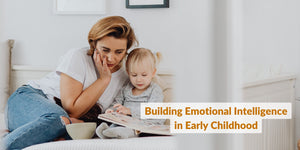
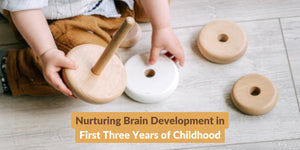

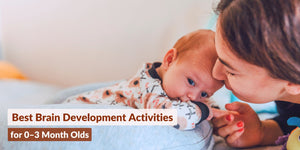

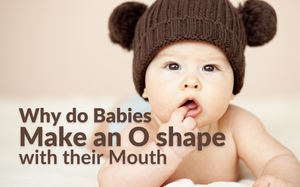
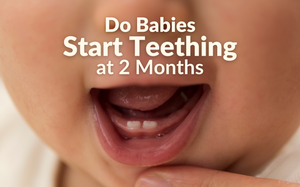
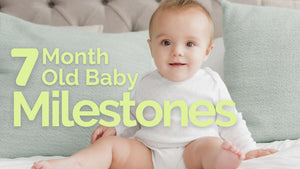
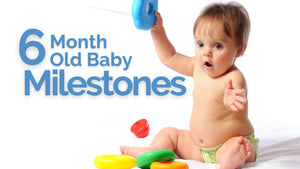

LEAVE A COMMENT